I'd interacting with a lot of deeply nested json I didn't write, and would like to make my python script more 'forgiving' to invalid input. I find myself writing involved try-except blocks, and would rather just wrap the dubious function up.
I understand it's a bad policy to swallow exceptions, but I'd rather prefer they to be printed and analysed later, than to actually stop execution. It's more valuable, in my use-case to continue executing over the loop than to get all keys.
Here's what I'm doing now:
try:
item['a'] = myobject.get('key').METHOD_THAT_DOESNT_EXIST()
except:
item['a'] = ''
try:
item['b'] = OBJECT_THAT_DOESNT_EXIST.get('key2')
except:
item['b'] = ''
try:
item['c'] = func1(ARGUMENT_THAT_DOESNT_EXIST)
except:
item['c'] = ''
...
try:
item['z'] = FUNCTION_THAT_DOESNT_EXIST(myobject.method())
except:
item['z'] = ''
Here's what I'd like, (1):
item['a'] = f(myobject.get('key').get('subkey'))
item['b'] = f(myobject.get('key2'))
item['c'] = f(func1(myobject)
...
or (2):
@f
def get_stuff():
item={}
item['a'] = myobject.get('key').get('subkey')
item['b'] = myobject.get('key2')
item['c'] = func1(myobject)
...
return(item)
...where I can wrap either the single data item (1), or a master function (2), in some function that turns execution-halting exceptions into empty fields, printed to stdout. The former would be sort of an item-wise skip - where that key isn't available, it logs blank and moves on - the latter is a row-skip, where if any of the fields don't work, the entire record is skipped.
My understanding is that some kind of wrapper should be able to fix this. Here's what I tried, with a wrapper:
def f(func):
def silenceit():
try:
func(*args,**kwargs)
except:
print('Error')
return(silenceit)
Here's why it doesn't work. Call a function that doesn't exist, it doesn't try-catch it away:
>>> f(meow())
Traceback (most recent call last):
File "<stdin>", line 1, in <module>
NameError: name 'meow' is not defined
Before I even add a blank return value, I'd like to get it to try-catch correctly. If the function had worked, this would have printed "Error", right?
Is a wrapper function the correct approach here?
UPDATE
I've had a lot of really useful, helpful answers below, and thank you for them---but I've edited the examples I used above to illustrate that I'm trying to catch more than nested key errors, that I'm looking specifically for a function that wraps a try-catch for...
- When a method doesn't exist.
- When an object doesn't exist, and is getting a method called on it.
- When an object that does not exist is being called as an argument to a function.
- Any combination of any of these things.
- Bonus, when a function doesn't exist.
